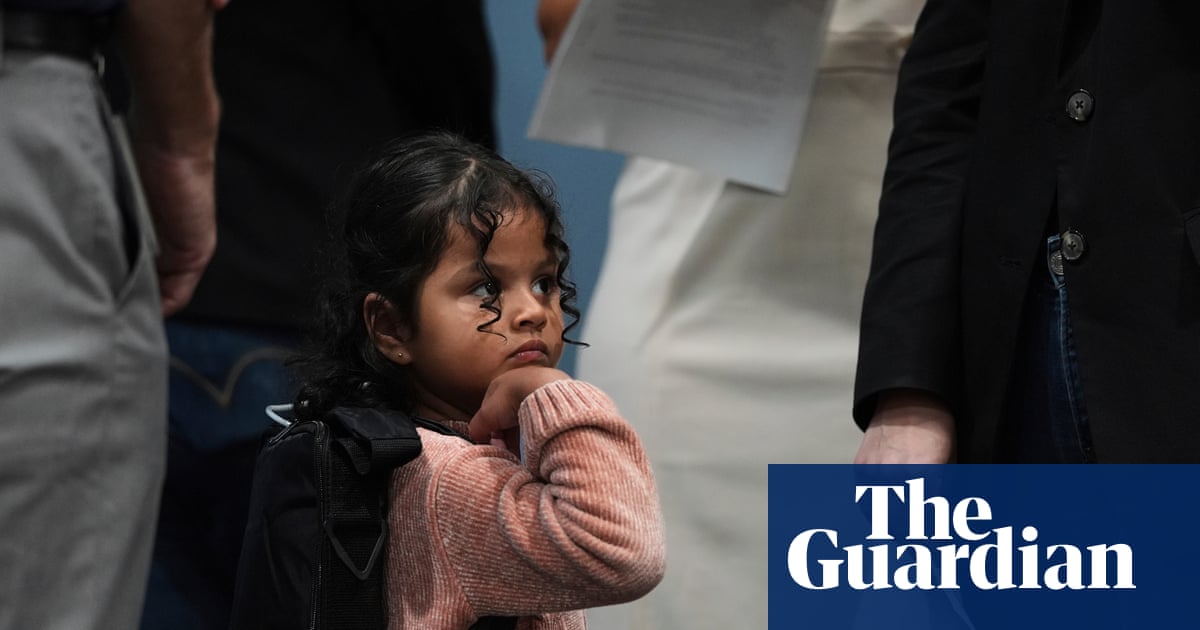The family of a four-year-old girlwho is receiving life-saving treatmentin the United States are fighting against deportation, as her medical team warns she will likely die “within days” if forced to return to Mexico.
Deysi Vargas, her husband and their daughter – whom lawyers identified by the pseudonym Sofia – came to the US in 2023, receiving permission to enter the US on humanitarian grounds to seek medical care. Sofia suffers from short bowel syndrome, requiring specialized care that includes IV treatments for 14 hours a day. She has seen significant improvement since arriving in the US and obtaining care at Children’s hospital Los Angeles, her mother said.
But in April, DonaldTrump’s administrationterminated the family’s legal status and ordered them to self-deport, which would have grave consequences for Sofia.
“Sofia’s doctors have been clear she will die within days,” Gina Amato, the directing attorney of Public Counsel’s Immigrants’ Rights Project, which is representing the family. “Deporting this family under these conditions is not only unlawful – it constitutes a moral failure that violates the basic tents of humanity and decency.”
The family’s attorney has sought to have the administration reverse its decision and restore humanitarian parole, a temporary statusgranted to peopleon urgent humanitarian grounds,citing Sofia’s dire need for care. The family has not received a response.
The legal status the family previously received saved Sofia’s life, her mother said at a press conference on Wednesday, as her curly-haired daughter sat nearby, feet dangling off a chair while she played with stickers. Sofia was born with her condition and, while inMexico, was hospitalized constantly and did not improve, Vargas said.
“Now with the help she’s received in the United States, my daughter has an opportunity to get out of the hospital, know the world and live like a normal girl of four years,” she said through a translator.
Sofia currently receives nutrition intravenously as well as through a feeding tube, Amato said, but that treatment is not available abroad because the equipment cannot be taken outside the US. While her condition has significantly improved, Sofia cannot yet survive without the treatment she receives from the hospital, her mother said.
Humanitarian parole was made for people like Vargas and Sofia, the family’s lawyer, Rebecca Brown, said, adding that she came to the US legally – applying to enter the country and waiting until her application was approved before entering. If the government conducted an individualized assessment, as required by law, they would see the need for Sofia to remain in the US, Brown said.
Sign up toFirst Thing
Our US morning briefing breaks down the key stories of the day, telling you what’s happening and why it matters
after newsletter promotion
Amato argued the case was a symbol of “the recklessness of this administration’s deportation policies”.
“To suddenly yank away that welcome mat, take away Sofia’s lifesaving care and quite literally risk her life is a cruel betrayal of our nation’s values and an affront to our shared humanity,” Amato said, adding that the government’s policies are endangering many immigrants seeking refuge. “These are people coming to us for protection and instead we’re sending them to die.”
